Paradox has made a name for itself by producing some of the finest historical grand strategy games out there. Last year, they took their formula in a new direction with the release of Stellaris, a game that is largely about space exploration and conquest. This game sounded exciting when it first arrived, but there was just one problem.
The game was so bare-bones and bug-riddled that it became a chore to play.
Luckily, circumstances have changed with the release of the “Adams” patch and the Utopia expansion. Now that most of the bugs are gone, it is a good time to take an exhaustive look at what the game has to offer. Does this game have what it takes to be worth your time?
Unfortunately, no. Let’s take a look at why, shall we?
The Positives Come First.
Before you venture out into the unknown, it’s important to note that the customization features for your empire are second to none. I may have started with the template civilization known as the United Nations of Earth, but there are many ways to create your own galactic power. Do you want to welcome species or reject them? Are you keen to start wars or do you want to keep the peace? What about your religious fervor or atheistic reasoning?
The choice is yours!
When you do get out into the galaxy, you’ll discover that Stellaris has a unique sense of atmosphere. The early game is quite fun because it follows the Star Trek credo of boldly going where no one has gone before. Depending upon the type of galaxy you want to play in, you may run into space creatures, animals that can be uplifted to sentience, the remnants of engineered megastructures, and civilizations may or may not be exploring the stars alongside your species.
The ship designer is a unique system that gives Stellaris a 4x feel. While the player may not get much use out of it in the early game, they will find that it is necessary to adapt their fleets to new scenarios. Certain technologies pierce armor, but others take out shields. The player should keep an eye on the designer so that they can master the wars in the middle game.
Unfortunately, this is also where Stellaris falls flat on its’ face.
Where’s The Flavor?
When there is nothing else to explore, Stellaris offers very little to the player other than warfare, basic economic management, superstructures, and the possibility of evolving into another form of life via the tradition system. There is so little to do in peacetime that Stellaris becomes a nearly passive experience. It may be fun to build up infrastructure for a while, but the intrigue that one might find in any of Paradox’s historical titles is not here.
One of the biggest contributors to this issue is the lack of turmoil on the home front. The game uses a population and faction system to account for the internal politics of each empire, but it seems like nothing more than a way to farm influence points. If portions of the population are unhappy, it is entirely possible to balance the scales and put people back to work by creating an enormous military presence on every planet.
One might think that the unhappy populace would petition the government or cause a ruckus, but it never crosses their minds.
The lack of an extensive espionage or diplomacy system is another problem that needs to be addressed. A galactic community is the perfect place to play with spies, diplomatic crises, and all sorts of other messes, but the game just offers the player some dialogue boxes to trade resources, form alliances, and throw insults at rivals. It is a surprising step backwards for Paradox’s efforts in the genre, especially when one considers that all of their other games have more extensive systems.
The AI Is Stupid.
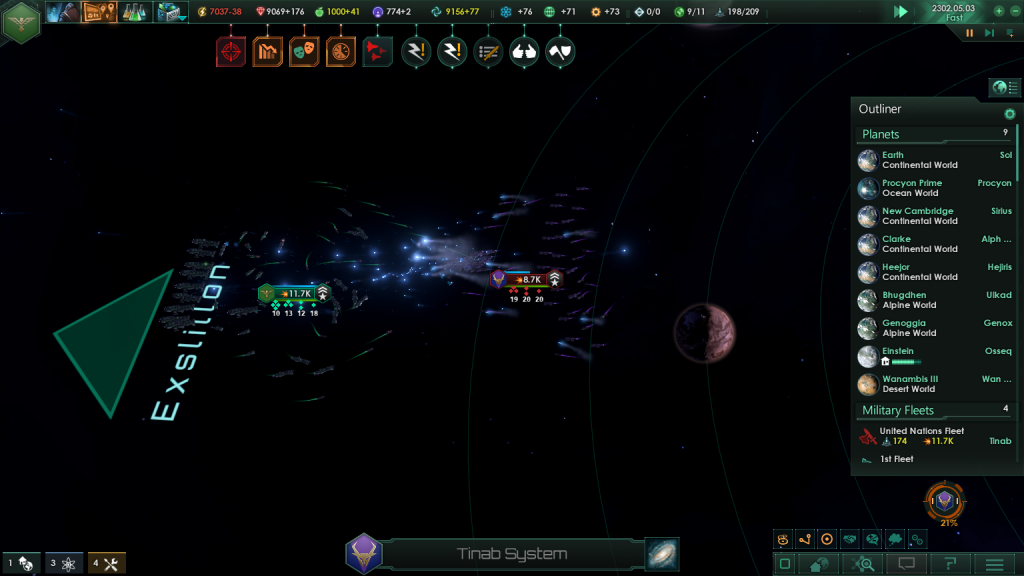
The Pallyrian AI jumped back and forth between two systems, which allowed me to corner and destroy them with no significant losses.
Stellaris’ biggest immersion killer is the AI. In every other Paradox game, the player can face off against a reasonably competent set of opponents. By contrast, Stellaris sets itself apart from the pack by conking computer-controlled emperors and presidents over the head with a frying pan.
The AI engages in senseless actions that can throw games into chaos at the drop of a hat, partly because it seems to have no way of gauging what it’s up against. In combat, the AI forces engagements that may destroy their entire fleet. In peace, they seem to shut their borders at random times, even it traps your science ship on the opposite side of the galaxy. Since the diplomacy screen offers no way of solving problems, the only recourse appears to be war. Endless war.
It all seems to be a little bit messy.
Conclusion.
Stellaris has plenty of potential, but it is a little too bare-bones at the moment. A grand strategy gamer may get some entertainment value out of it, but it doesn’t have enough going for it to satisfy veterans of the genre or encourage people to play it again and again. At the moment, it needs a better political system, more storytelling, a functioning diplomacy screen, and spying to make it everything that aspiring conquerors might hope for in a video game.
It is possible that the game may be great at some point in the future. For now, it is best to hold off.
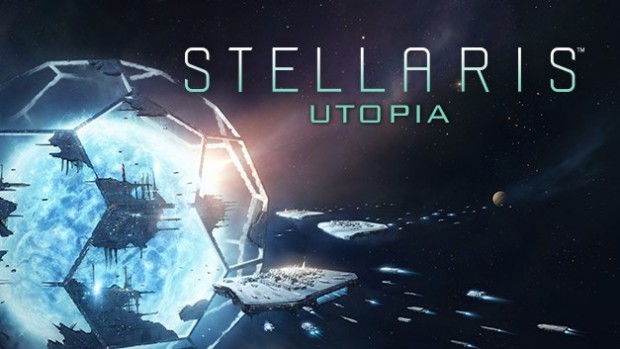
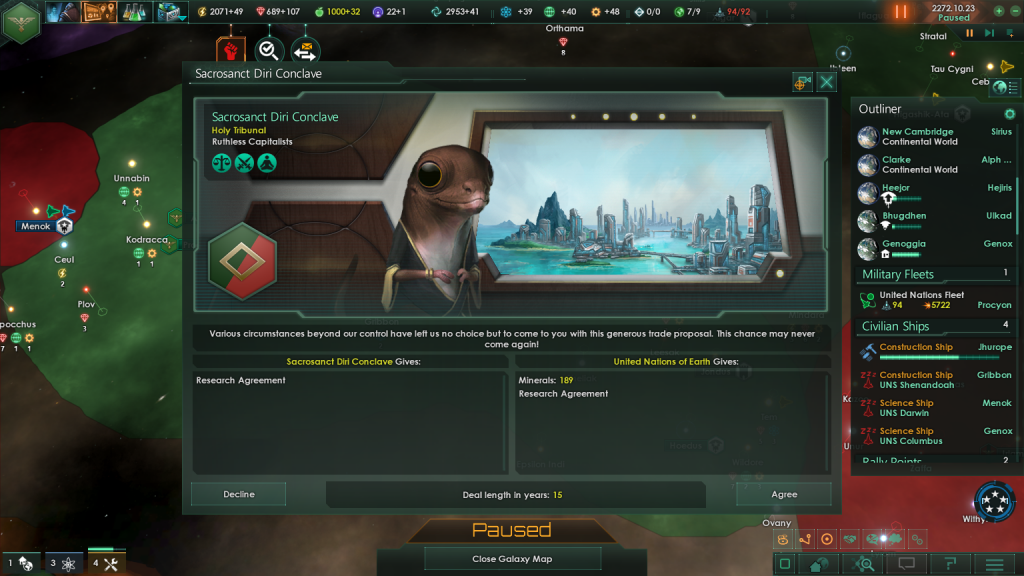
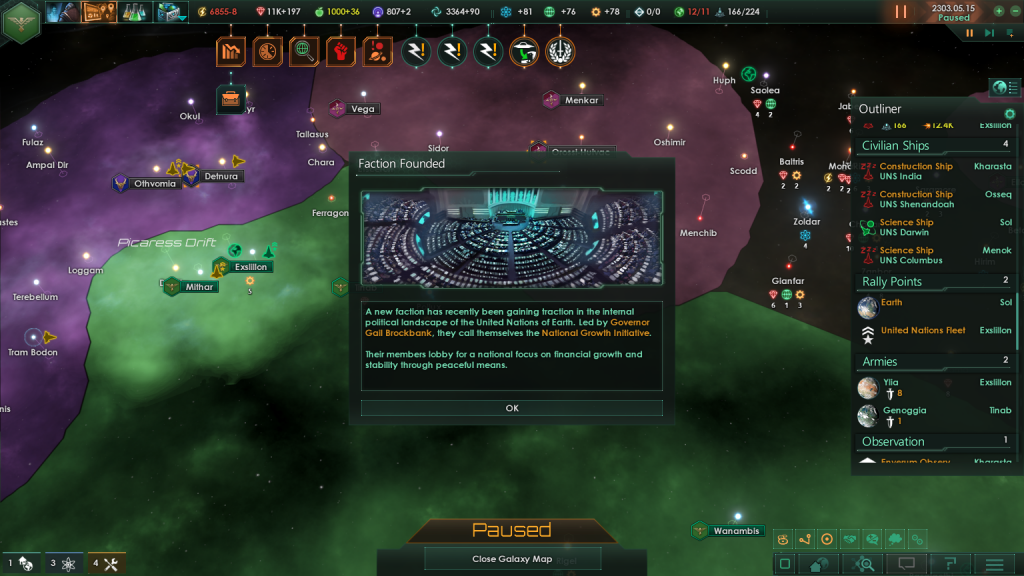
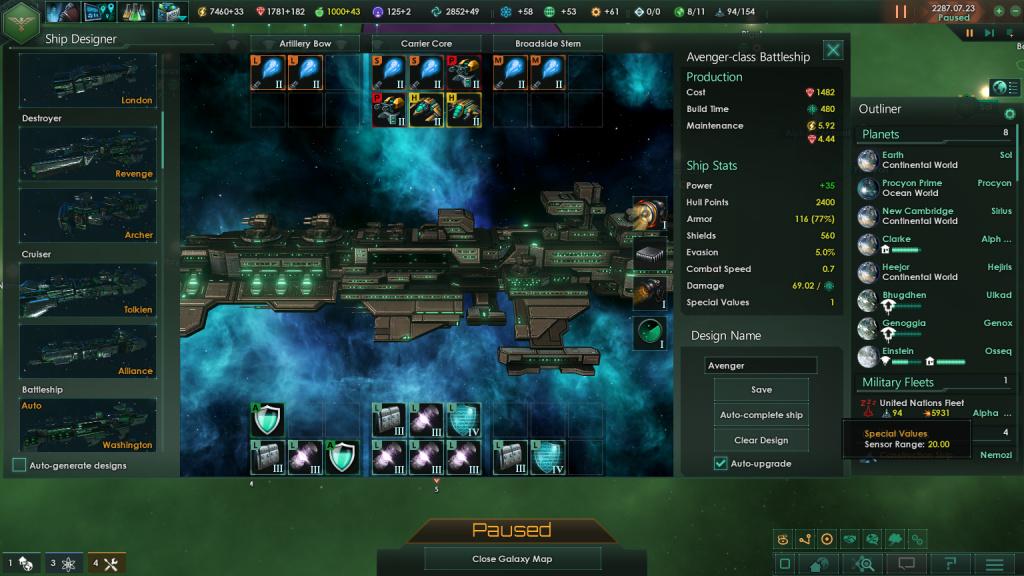
No Comments Yet